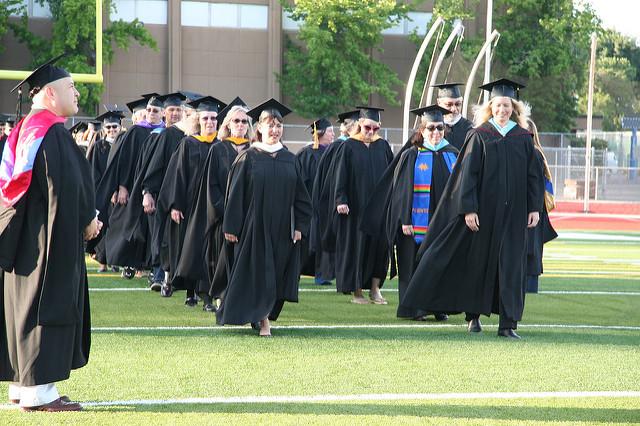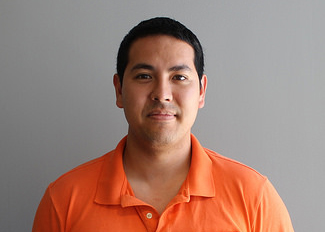Faculty and administration push student success
Faculty and administrators aim to help more students walk at future commencement ceremonies by switching to shorter semesters. (DVC Inquirer)
February 20, 2017
In the daily stress of students’ lives, high textbook prices, getting into required courses, balancing work, family and school are top of mind.
Mundane words like persistence, retention, growth and success are unknown to many.
But to faculty and administration words like these represent key measurements used to define how well they are helping students achieve their goals.
Part of their collaborative work to help students has brought the sea change towards shorter semesters, a stop-and-start process 10 years in the making.
In weighing the decision to shorten semesters faculty members researched extensively how students performed at other colleges that switched.
Studies concluded shorter semesters do have a positive overall impact on student achievement but the reason why is less clear.
Some hypotheses suggest students get more burned out over longer semesters or the compressed schedule is more intense and leaves less time for extracurricular activities like clubs or team sports.
Sociology Professor Dr. Andy Barlow teaches at both DVC and UC Berkeley and wrote via text, “I think by week 16 everyone is tired and that most of the learning has already taken place. Berkeley is on a 15 week semester and the last week is not even for instruction but is used for special projects including term papers. And that works well.”
Notably, the impact of switching to compressed calendars was not uniform across fields of study or colleges.
According to the faculty union’s executive summary studying compressed schedules math and science students had a more difficult time than students in other courses.
Vocational students, students who are parents and developmental students, like those who come in with weaker reading comprehension skills, may be hurt more by the change.
Despite these imperfections, faculty across the Contra Costa Community College District overwhelmingly feel the switch will benefit students.
“I was unable to find faculty at colleges at 16 week semesters that didn’t think it was great. Even faculty who told me they had been reticent at first said that once they started doing it they liked it better,” said English professor and faculty union executive director Jeffrey Michels.
This does not mean there was not debate among faculty when examining what would be best for students.
Professor Donna Wapner, who teaches health science, wrote via email that some faculty do worry that covering the subject material in less weeks (particularly in math and sciences) may make it harder for some students to digest the material fully. However she noted that she was not saying that the switch was not a good idea and that no California community college that made the decision to compress the calendar ever went back to the 18 week semester.
Professor Leo Bersamina, who teaches art and photography, thinks the compressed calendar is a great idea because if it leads to longer class times it will give art students more time in-studio to setup and paint.
Vice president of instruction Rachel Westlake emphasized shortening semesters from 18 to 16 weeks in the 2018-19 academic year was one of hundreds of models considered to help students.
She also pointed out the process to determine how the new calendar will look has not yet begun and the changes will not take effect until fall of 2018.
First the CCCCD Governing Board will have to approve the contractual agreement with faculty relating to the switch to a compressed calendar.
From there each college’s faculty and management will create the new class schedules students will experience when they step foot on their campuses in Fall 2018.
They will decide at their next meeting which will occur at 6 p.m. on Wednesday, Feb. 22 at 500 Court St. in Martinez, where the governing board is expected to approve the agreement.
For further reading on compressed calendars visit:
uf4cd.org/latest-news/compressed-calendar-data-and-discussion
asccc.org/content/what-can-we-say-about-impact-compressed-calendars-and-courses-student-success







































































